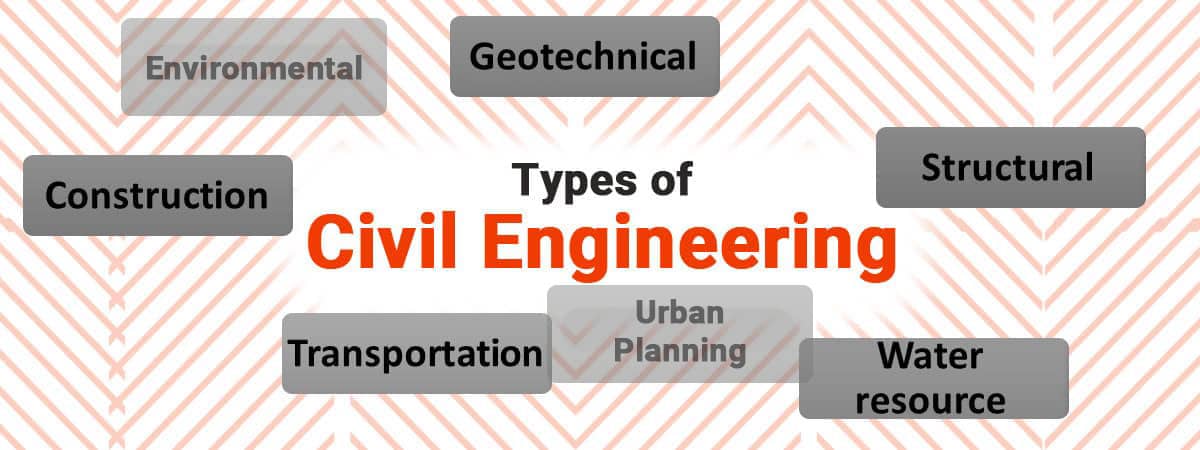Types of Civil Engineering
The following are different kinds of civil engineering fields:
- Construction Engineering
- Environmental Engineering
- Geotechnical Engineering
- Structural Engineering
- Transportation Engineering
- Water Resources
- Urban Planning
Construction Engineering
The construction engineering is a profession which includes discipline, planning of tangible structure of a design. Using technical and management skills, an engineer can turn designs into reality with a given period of time and budget. Construction of projects and knowledge materials methods and equipment, together with principles of financing, planning, and managing, a construction engineer can turn the designs into successful buildings.
Environmental Engineering
A job of Environmental engineers is to convert broad scientific terms like chemistry, biology, ecology and biological processes to create a solution to remove pollutants from water, reduce non-hazardous solid waste volumes, from the air, and develop groundwater supplies. In this area, an engineer has to solve problems of providing safe drinking water, cleaning up sites contaminated areas with hazardous materials, cleaning up and preventing air pollution and to improve the health of living things.
Geotechnical Engineering
Nearly all of the provisions that create our infrastructure with earth materials is done by geotechnical engineering or geotechnical. It is the discipline that deals with soil mechanism and rock mechanism technology to solve these problems. Earth are tunnels, deep foundations, underground structures, dams, natural or artificial fills, roads and airports, subgrades and ground structures, and slope stability assessments are examples of geotechnical engineering applications in practice.
Structural Engineering
Structural engineer are the ones that analyses and designs buildings to provide they safely, and doesn't collapse under applied loads. They deal with structural stability , integrity and strength of their own weight and resist dynamic environmental loads such as hurricanes, earthquakes, blizzards, and floods. Skyscrapers, offshore oil structures, space platforms, amusement park rides, bridges, office buildings, and homes are a few of the many types of projects in which structural engineers are involved.
Transportation Engineering
The quality of a community is directly propositionate to the quality of its transportation system, is the function as a transportation engineer . These engineers helps in building up resources to be able to move people, goods, and materials safely and efficiently. They design, construct, and maintain all types of structures which includes highways, railroads, airfields, and ports.
Water Resources
Water is vital to our lives, and as a water resources engineering it involves the design of new system and equipment which deals with issues concerning the quality and quantity of water. The function of water resources engineers is to touch these following works- to prevent floods, to supply water for cities, industry and irrigation, to treat wastewater, to protect beaches and to manage and redirect rivers.
Urban Planning
As a professional in this area, their work will be concerning with the full development of a community. Discussing a variety of information which will help them to coordinate projects, such as projecting street patterns, identifying park and recreation areas, and determining areas for industrial and residential growth.

